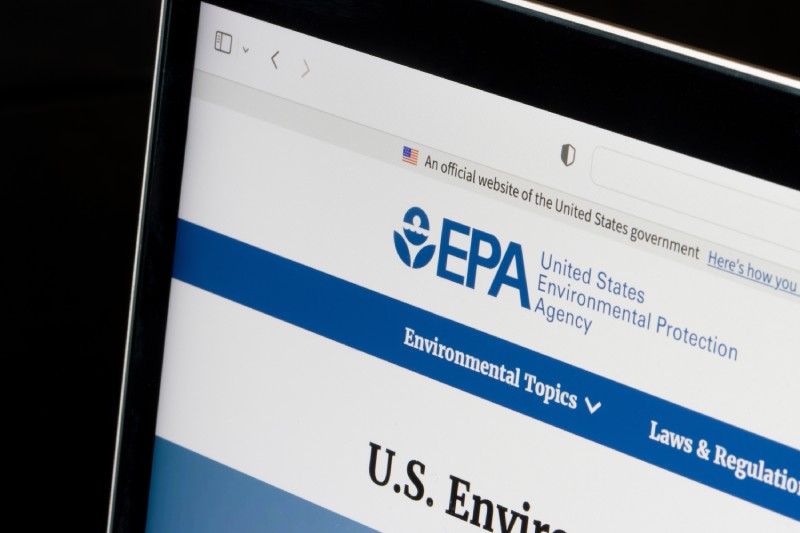Business
How To Ensure Your Business Complies With Environmental Law

Running a business is no small feat. You wear many hats, juggling marketing, finances, and keeping your customers happy. But there’s another crucial aspect to consider: the environment. Environmental regulations might seem like an overwhelming extra layer of complexity, but they’re essential for any business operation.
This guide cuts through the confusion and provides a clear, actionable plan to ensure your business complies with environmental laws. By following these steps, you’ll operate legally, protect the environment, and potentially even boost your reputation as a sustainable company.
Let’s dive in and make sure your business thrives while staying on the right side of environmental regulations.
Why Comply With Environmental Law?
Environmental laws aren’t just about keeping things green, although that’s a big perk. Here’s why compliance is crucial:
Avoid Hefty Fines
Non-compliance can result in significant penalties that could cripple your business.
Maintain a Good Reputation
Consumers are increasingly environmentally conscious. Showcasing your commitment to sustainability boosts your brand image.
Reduce Risks
Proper waste disposal and pollution control minimize environmental damage, protecting your business from potential liabilities.
Future-Proof Your Business
Environmental regulations are constantly evolving. To effectively manage these changes, partnering with experts like Carbon Training International, a registered training organization specializing in accredited carbon management courses, can be invaluable. They can provide the essential skills and knowledge needed to ensure compliance and preparedness for new regulations.
Following environmental regulations isn’t just the responsible thing to do. It’s a smart business decision that protects your finances, reputation, and future.
The Environmental Compliance Roadmap
Now, let’s get down to business. Here are the key steps to ensure compliance:
Identify Applicable Laws
The first step is understanding which environmental laws apply to your business. This depends on your industry, location, and activities. To ensure compliance, consider these primary sources of environmental regulations:
Federal Laws

The Environmental Protection Agency (EPA) sets national environmental standards. Familiarize yourself with key laws like the Clean Air Act, Clean Water Act, and Resource Conservation and Recovery Act (RCRA).
State and Local Laws
Many states and localities have additional environmental regulations. Check with your state Department of Environmental Protection (DEP) for specific requirements.
A thorough understanding of applicable environmental laws is crucial for maintaining legal compliance and supporting sustainable business practices.
Get the Permits You Need
Depending on your operations, you might need permits for things like air pollution, wastewater discharge, or handling hazardous materials.
Find the Right Permits
Research the permits your business needs. State DEP websites often have permit info and application instructions.
Get Help (Optional)
Hiring an environmental lawyer or consultant can make getting permits easier. They can ensure you apply for the right ones.
Depending on your operations, you might need permits for certain activities. Thankfully, securing the right permits doesn’t have to be a complex process.
Manage Your Waste
Proper waste disposal is key. Here’s how to handle different types:
Solid Waste
Have a plan for your everyday trash. Recycle what you can, compost food scraps, and hire a licensed hauler for the rest.
Hazardous Waste
If your business uses chemicals or solvents, you have specific rules for storing, labeling, and disposing of them safely.
A well-managed waste management program is good for the environment and your bottom line.
Control Pollution
Depending on your industry, you might need to take steps to control air and water pollution.
Air Emissions
Businesses that create air pollution may require equipment or permits to control it.
Water Pollution
Facilities that discharge wastewater might need treatment systems or permits to ensure it meets clean water standards.
By controlling air and water pollution, your business can operate sustainably down the road.
Train Your Team
Educate your staff about environmental regulations and best practices. This empowers them to make eco-conscious decisions that contribute to sustainability efforts.
Training Programs
Develop training programs that cover waste reduction, spill prevention, and proper handling of hazardous materials.
Ongoing Awareness
Regularly reinforce environmental awareness among employees through workshops, reminders, and company-wide initiatives.
Empower your team members to be good stewards of the environment.
Staying Compliant
Environmental compliance is an ongoing process. Here are some tips for staying on top of things:
Stay Updated
Environmental regulations can change. Sign up for updates from the EPA and your state DEP to stay informed.
Inspect Regularly
Conduct regular internal inspections to identify potential compliance issues and fix them quickly.
Keep Records
Maintain detailed records of your permits, waste disposal documents, and employee environmental training. You’ll need this during inspections or audits.
Staying on top of environmental regulations is an ongoing process, but with these tips, your business can operate smoothly and responsibly.
Getting Help
You don’t have to go it alone. Here are resources to help you comply:
Government Agencies
The EPA and state DEPs offer a wealth of information on environmental regulations, permitting, and best practices. They often have educational materials and webinars to help businesses understand their obligations.
Industry Associations
Many industry associations provide resources and guidance specific to the environmental challenges faced by your sector.
Environmental Consultants
Hiring an environmental consultant can be a wise investment. They can help you navigate regulations, develop environmental management plans, and ensure compliance.
Don’t hesitate to utilize the resources available to make your compliance efforts smoother and hassle-free.
The Bottom Line
By following these steps and embracing sustainability, you can ensure your business operates legally and protects the environment. Remember, compliance isn’t just about avoiding fines; it’s about being a responsible business leader and contributing to a healthy planet. So, take the first step today and become an environmentally responsible business!
-

 Business3 weeks ago
Business3 weeks agoPrakash and Kamal Hinduja: Driving Social and Environmental Change
-
Education4 weeks ago
Fred DuVal: University Leadership as a Critical Resource for Climate Change Research and Life-Saving Solutions
-

 Health3 weeks ago
Health3 weeks agoThe Hinduja Brothers Commitment to Global Health: Empowering Communities Across Borders
-

 Cryptocurrency3 weeks ago
Cryptocurrency3 weeks agoDesigned For The Masses: How Akasha (AK1111) Is Unlocking Crypto For The Next Billion Users
-

 Cryptocurrency4 weeks ago
Cryptocurrency4 weeks agoNexaglobal & Future World Token (FWT): Could This Be the Next Big Crypto Investment of 2025?
-

 Sports4 weeks ago
Sports4 weeks agoWomen’s NCAA Tournament 2025 Sweet 16: Full Schedule, Fixtures, Teams, Bracket, and How to Watch March Madness Basketball Match Live
-

 Startup2 weeks ago
Startup2 weeks agoCost-Saving Strategies Every Small Business Owner Should Know to Boost Efficiency
-

 Startup3 weeks ago
Startup3 weeks agoMatthew Denegre on the Art of Deal Sourcing: Finding the Right Investment Opportunities






















